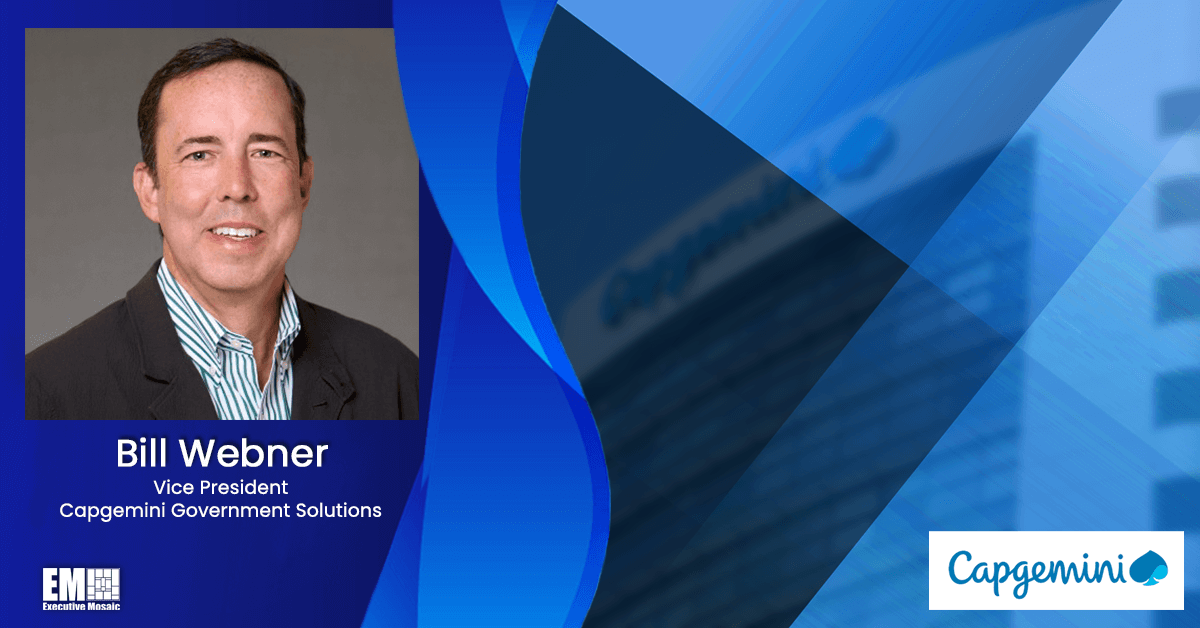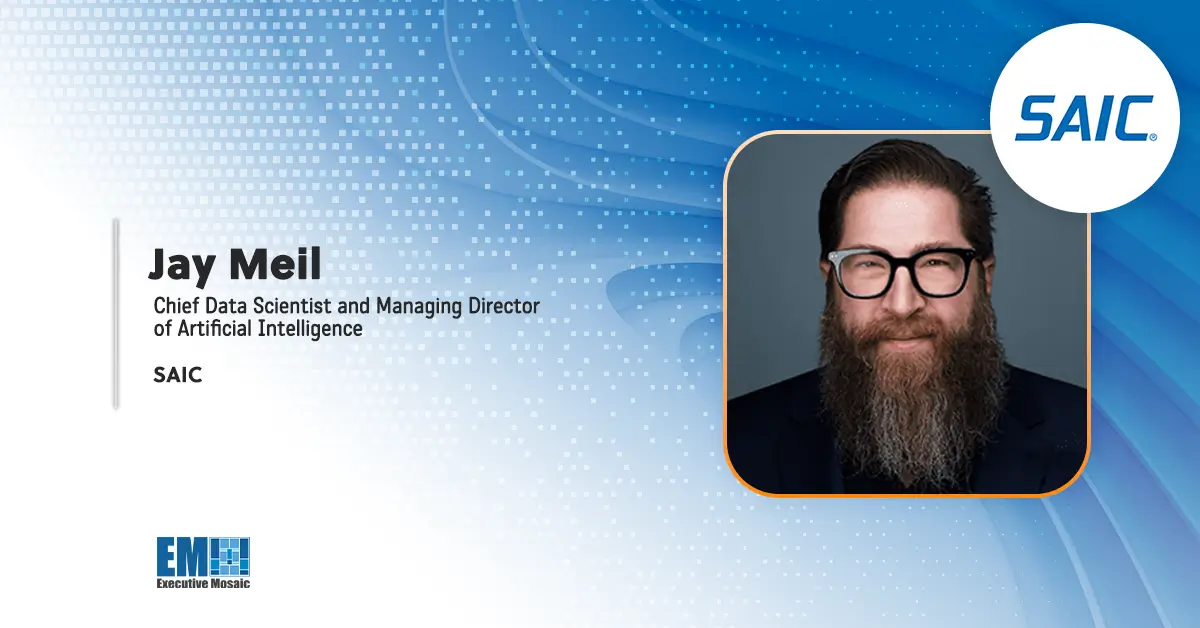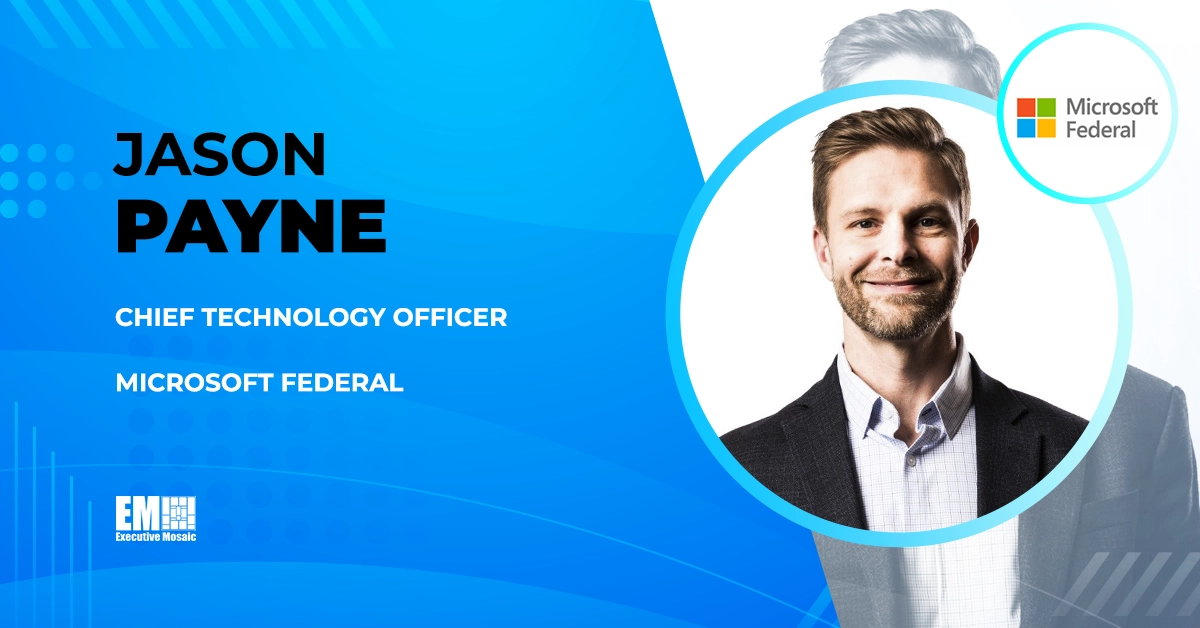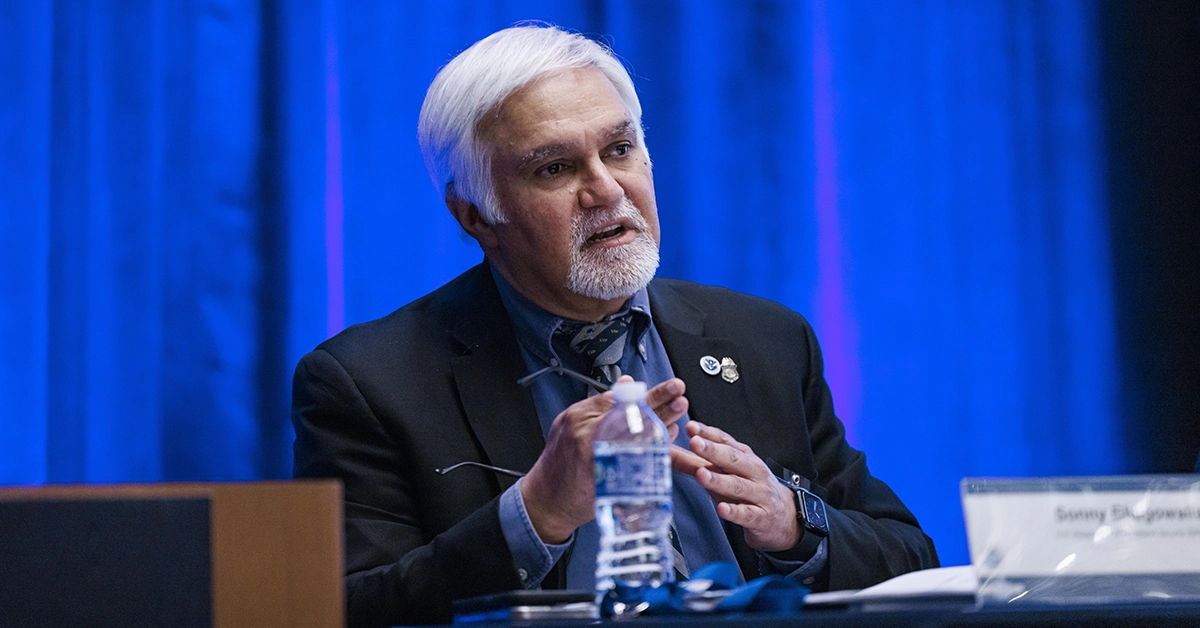Over the last eight-plus years, Bill Webner has helped information technology services and consulting company Capgemini better serve federal customers in the national security, defense, civil and health sectors. Through his work as vice president of the organization’s Government Solutions arm, Webner has overseen digital transformation efforts involving cloud, data, artificial intelligence and connectivity, as well as digital engineering and platform services.
Prior to his time at CGS, Webner served as a practice leader at Booz Allen Hamilton, where he worked for nearly 14 years. He is something of a jack of all trades, holding both an MBA from the George Washington University and an MLA in classical literature from St. John’s College. Webner additionally resides on both the finance committee and the government security committee of the CGS board of directors.
In this Executive Spotlight interview, Webner conversed with GovCon Wire regarding his thoughts on the ways artificial intelligence can be effectively deployed on the battlefield, the importance of accountability in cybersecurity activities and more.
An important part of a company having strong business ethics in the federal sector is about helping and giving back to the greater community. Can you speak to the various charities and work with other organizations that your company does to make a difference and how people can get involved?
As part of Capgemini’s broader Northeast geography, we combine efforts across several states to bring our employees together for a common goal of giving back to the greater community. Our ongoing and annual volunteer efforts aim to support local community efforts as well as national efforts to empower our youth and underrepresented groups, which hold many of the ideas and skills that influence the future of the federal sector.
With artificial intelligence and machine learning impacting most industries and the U.S. military dramatically as we move forward, what has impressed you the most about the technology’s capabilities to improve decision making across the federal sector and all areas? In addition, how can AI be used to address some of the biggest challenges you see in your industry?
For routine purposes, AI-enabled decision-making with explainability features and human oversight has proven to be extremely useful such as in analyzing trends to detect fraud, predicting market trends and shopping preferences, recommending actions for improved customer experience, and suggesting medical diagnosis and treatments. All these cases augment the human ability to identify, decide, and react quicker to the task at hand. AI has the potential to make on-the-ground, instantaneous decisions on the battlefield. It can even help to avoid human dispositions towards various biases on the battlefield, but it requires a high level of trust in AI and the team developing and maintaining it.
What do you see as the most critical challenges facing those in the federal sector as cybersecurity continues to rise in importance and cyber hygiene becomes a necessity for all companies and even more critical at the national security level?
Cyber attackers are constantly discovering new ways to penetrate organizations’ networks. Therefore, both public and private sector enterprises must constantly be on the defense, leveraging technologies like AI to overcome ongoing cat-and-mouse scenarios to efficiently trace, isolate, and irradicate breaches. Currently, Capgemini Government Solutions is seeing insider threat as a growing cybersecurity challenge. In these cases, the potentially malicious insider is already in the organization’s network, and in many instances, they’re trusted. So, experts need to understand activity patterns to identify and verify insider threats without disrupting operations. As a trusted federal contractor, we practice what we preach. Capgemini Government Solutions prioritizes cybersecurity, starting with our own workforce and networks through training, continuous verification of proper cyber hygiene, and implementation of a set of Cybersecurity Maturity Model Certification (CMMC) practices.
In recent years, what are some of the biggest improvements you’ve seen in the way we talk and think about innovation across the federal sector since the rise of cybersecurity, AI/ML, 5G and other emerging technologies?
The pace of technological change is only increasing and to remain competitive, we have to keep innovating and advancing. The increased use of Other Transaction Authority (OTA) and federally backed innovation competitions has provided the government with the opportunity to quickly trial new and innovative commercial and non-traditional solutions that exist outside of the federal market. This process helps limit costs associated with testing a new solution. Additionally, companies that have traditionally focused on the commercial sector now have an easier way of doing business with the government, so it results in a win-win for both parties.






